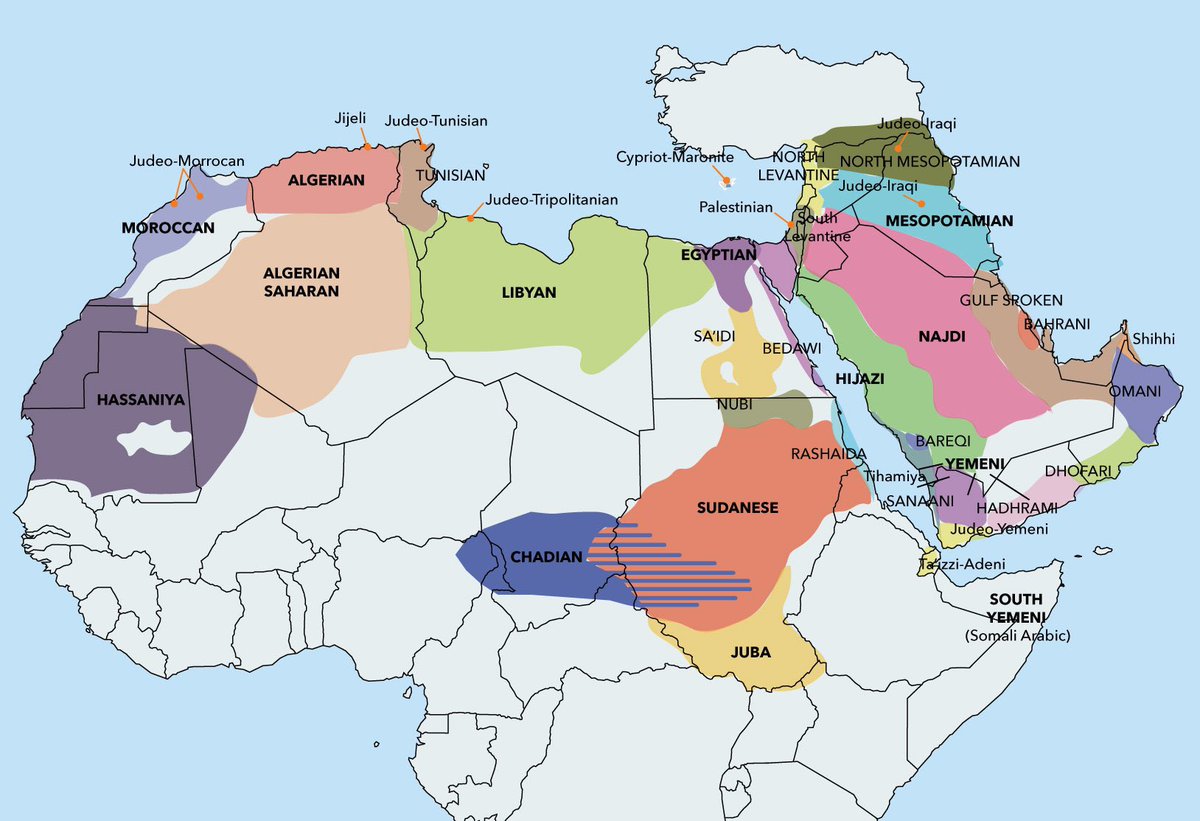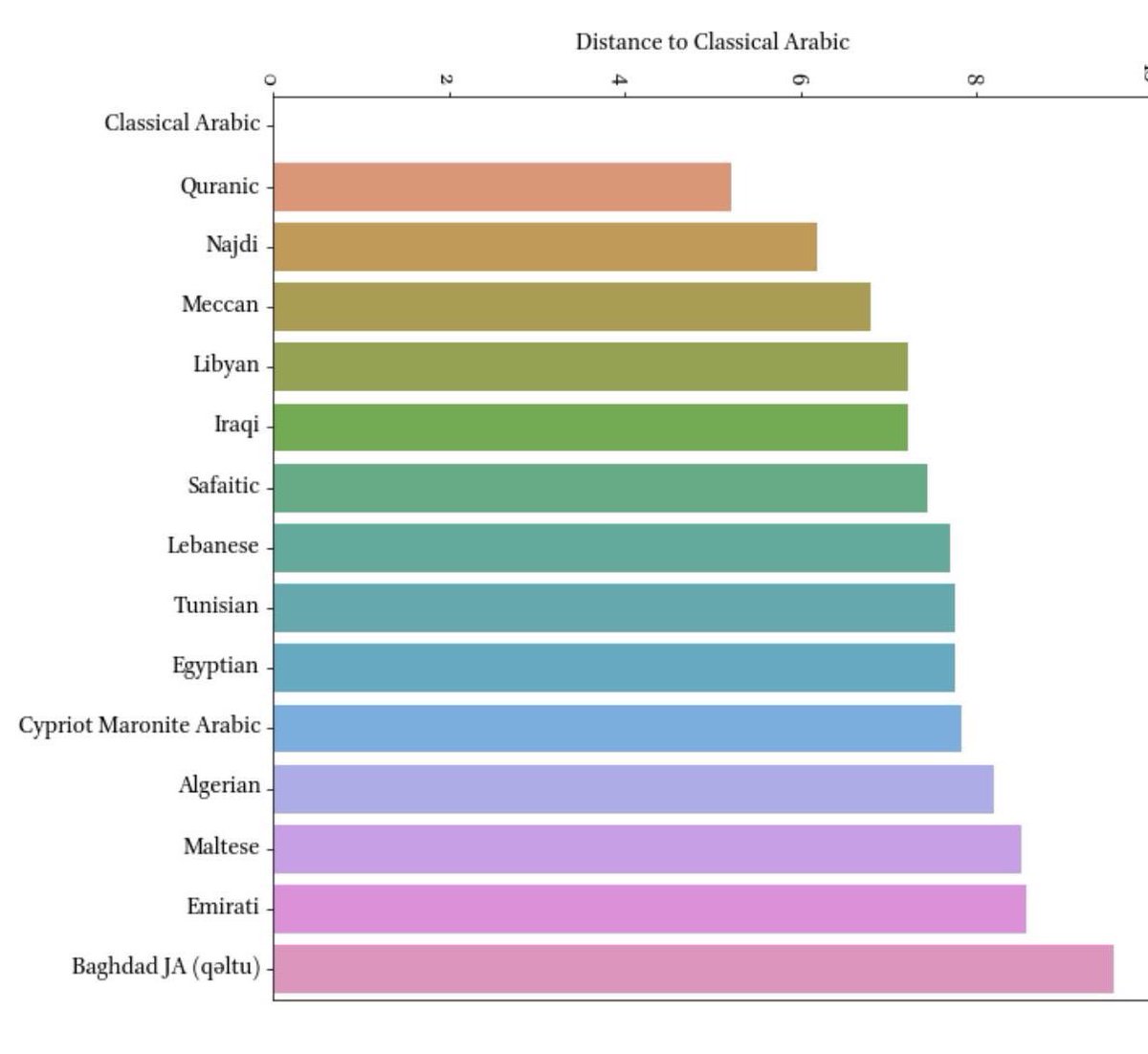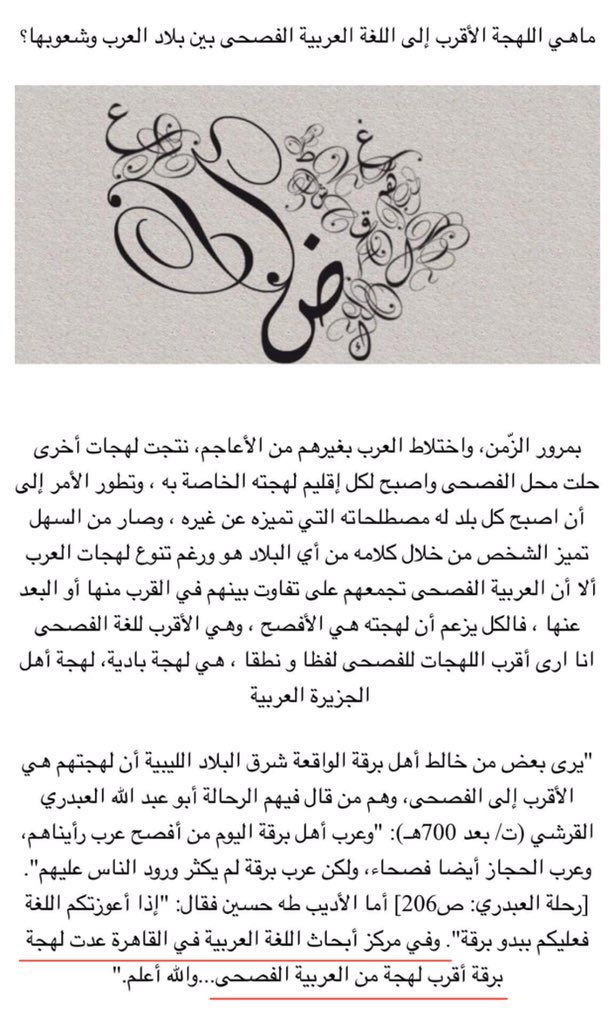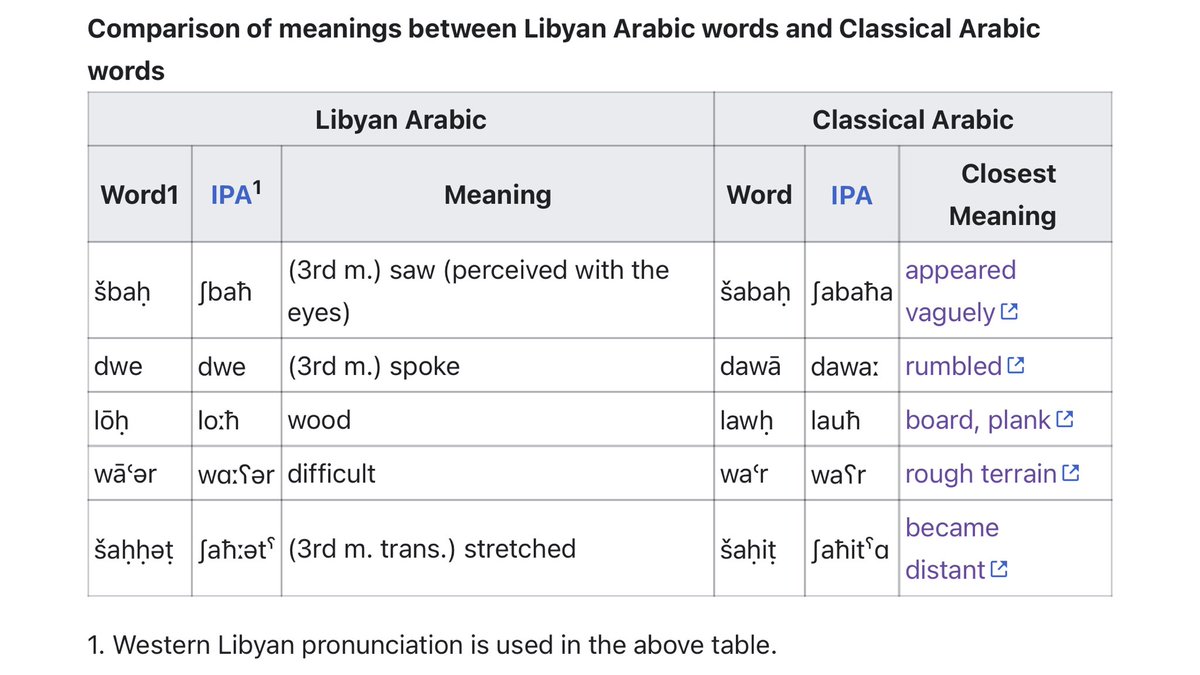Here is a thread on Libyan Arabic, its origins, eloquence and importance to its speakers.
Libyan Arabic can be divided into two major dialect areas. The eastern dialect spoken in; East Libya and West Egypt, and the the western dialect spoken in West Libya, South Tunisia and parts of East Algeria.
Libyan Arabic is spoken as a native language by around 90% of Libyans, and as a second language by the other 10%.
The Arab world is defined by a dialect continuum, where each dialect is similar to the neighbouring ones.
The Libyan dialect acts as a dialect continuum between Egypt and Tunisia, which in turn acts as a dialect continuum between Libya and Algeria and so on.
The Libyan dialect acts as a bridge between the Mashreq and Maghreb Arabic dialects.
The Libyan dialect acts as a bridge between the Mashreq and Maghreb Arabic dialects.
Libyan Arabic is often classified as Sulaym Arabic, a variety of Hilalian Arabic, by linguists (most likely due to the migration of the Banu Sulaym tribe to Libya in the 11th century).
Below is an estimate of the proximity of different Arabic dialects to Classical Arabic, where Libyan Arabic comes 3rd place behind Najdi and Meccan Arabic:
https://twitter.com/safaitic/status/1167439153434259456?s=21
https://twitter.com/safaitic/status/1167439153434259456?s=21
The Moroccan explorer Al-Abadry (13-14th century) praised the Arabs of Eastern Libya as being the most eloquent speakers of the Arabic language.
Translation in the following tweet.
Translation in the following tweet.
“And the Arabs of Cyrenaica (East Libya) today are the most eloquent of Arabic speakers we have seen, and the Arabs of Hijaz (West Saudi Arabia) too. However the Arabs of Cyrenaica not many came to encounter,
... so their speech has not mixed with others, and they are now on their Arab traditions, and their words have not been distorted but a little bit. And they do not leave the expression of speech but for which they can add to what they already express.”
This opinion was shared by “The Dean of Arabic Literature” the Egyptian Taha Hussein in the last century, who said:
"إذا اعوزتكم اللّغة العريبة فعليكم بأهل برقة فهم الأقرب
للفصيحة."
Translation in the following tweet.
"إذا اعوزتكم اللّغة العريبة فعليكم بأهل برقة فهم الأقرب
للفصيحة."
Translation in the following tweet.
“If you are in need of the Arabic language then go to the people of East Libya, for they are the closest to the Eloquent Arabic.”
And it is said the Eastern Libyan Arabic was deemed to be the closest to the Classical Arabic by the Cairo Institute of Arabic Research and Studies (cannot confirm):
The Libyans take great pride in their Arabic language, it is often seen as shameful for a Libyan to not be able to speak Arabic well.
Here is an example of poetry in the Eastern Libyan dialect:
Here is an example of a Libyan man speaking about the Libyan crisis, in a form of poetry in Western Libyan Arabic:
Libyan Arabic includes a lot of Classical Arabic words that have disappeared from most other Arabic dialects.
Examples are as such:
Examples are as such:
Libyan Arabic follows other Maghrebi dialects in using ن as the first person singular verbs and ن plus وا at the end of the word, to signify first person plural verbs.
Libyan Arabic uses the Bedouin ق which is pronounced as the English G.
And similar to Maghrebi and Levantine Arabic in pronouncing ج as the French J.
And similar to Maghrebi and Levantine Arabic in pronouncing ج as the French J.
Here is spoken poetry from Western Libya about a story of a Bedouin Arab man who became interested in a city girl:
Here is some spoken poetry from Eastern Libya talking about the importance of good companionship:
Even when singing, Libyans ensure to use the highest form of Arabic they can, such that only the gifted Arabic speakers can comprehend.

 Read on Twitter
Read on Twitter

![Libyan Arabic [Thread] Libyan Arabic [Thread]](https://pbs.twimg.com/media/EtKUoIwXMAIG7KR.jpg)







